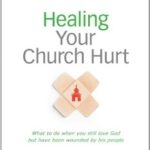Recently, when preaching from Exodus 4:1-17, I wanted to grab the congregation’s attention AND put them in Moses’ shoes before we walked through the text together
First, to get their attention, I said how bizarre it is that we want to watch someone fail. During the Olympics, we watch a replay of a crash over and over and over again. We want to look away. Our faces grimace at the sight. But we keep watching (BTW – I wanted to mention the Olympics because it was on people’s mind. It had been on TV the previous 2 weeks). When we pass a wreck on the interstate, we know we shouldn’t be so intrigued, but we slow down and look to see what is going on. I quoted from an article that reveals, scientifically, why we do these things:
“Witnessing violence and destruction, whether it is in a novel, a movie, on TV or a real life scene playing out in front of us in real time, gives us the opportunity to confront our fears of death, pain, despair, degradation and annihilation while still feeling some level of safety,” he explains. “This sensation is sometimes experienced when we stand at the edge of the Grand Canyon or look through the glass at a ferocious lion at the zoo. We watch because we are allowed to ask ourselves ultimate questions with an intensity of emotion that is uncoupled from the true reality of the disaster: ‘If I was in that situation, what would I do? How would I respond? Would I be the hero or the villain? Could I endure the pain? Would I have the strength to recover?’ We play out the different scenarios in our head because it helps us to reconcile that which is uncontrollable with our need to remain in control.”
Why did I start this way? Because when we read in Exodus 3 & 4, we read Moses giving ugly excuse after ugly excuse. We want to look away, but we can’t stop reading. We know we are just like that, and do what Moses does, but since it is not us we continue reading.
Or maybe we keep reading because it is so much like us??
Second, I wanted the congregation to know how I was framing up the message. I asked the question, “Why didn’t Moses just turn and walk away? It’s obvious he didn’t want to do it. Why not just walk back to his family?” My answer is that there was something going on inside of him that knew there was more. He was made for a purpose. He was made for something bigger than himself. To emphasize the point, I quoted from Gordon MacDonald’s book A Resilient Life: You Can Move Ahead No Matter What:
“I believe that big-picture thinking – at least for the Bible believer – demands a sense of call. Heaven imprints the heart of a person with a compelling destiny that provides meaning and focus to life. . . There must be in most people a deep instinct to hear such a call, to feel that we can align our lives with a higher sense of purpose than just the routines of daily living.”
By doing these two things, I hope I (1) grabbed their attention; and (2) helped them see that they too are a lot like Moses. The longer preach, the more I am convinced that people want to know how this impacts them if they are going to give attention to it and heed what is being proclaimed.
What are some ways you have done this recently for your congregation?












